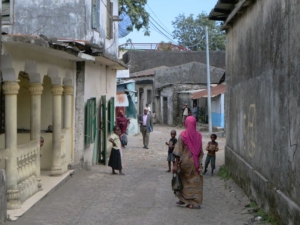Addressing Homelessness in Comoros
 The Comoros is a developing country located off the coast of East Africa, consisting of three islands, including Grande Comore, Anjouan and Moheli. Poverty and homelessness have been a large issue for the country for over 10 years, but the country truly focused on reforming development after the 2019 cyclone and the COVID-19 pandemic, causing a growth in poverty rates. Here is more information about homelessness in Comoros.
The Comoros is a developing country located off the coast of East Africa, consisting of three islands, including Grande Comore, Anjouan and Moheli. Poverty and homelessness have been a large issue for the country for over 10 years, but the country truly focused on reforming development after the 2019 cyclone and the COVID-19 pandemic, causing a growth in poverty rates. Here is more information about homelessness in Comoros.
The Issue
Homelessness in Comoros tends to stem from a lack of opportunities, which results in an unequal distribution of consumption expenditures. Within the years 2004-2014, supplies and housing conditions saw improvements, with the percentage of people going through hardships dropping from 85% to 75%, but the number of people lacking access to supplies remained high. As educational and job developments began to increase, the Comoros’ homeless faced major setbacks due to a natural disaster and health crisis.
In April 2019, Tropical Cyclone Kenneth hit the Comoros, causing flood damage, contaminated water tanks, loss of power for days and damaged roads limiting travel access. The cyclone resulted in the loss of more than half of the Comoros’ main crop food source, affecting the food supply and livelihoods. The severe damage to homes and land resulted in an estimated 20,000 people experiencing displacement.
Despite the immediate response from supporting organizations, flooded roads and a loss of power supply caused difficulty in moving supplies. The capacity of the Comoros’ Government to respond to a crisis like this is limited, putting a strain on the country as a whole.
Cyclone Kenneth’s impact already affected the homeless, and the people faced further hardship with the arrival of COVID-19, which caused a restraint in job opportunities and increased health issues as the country does not have the services to respond to a national pandemic.
Developments
Despite the increased hardships, the Comoros’ Government sought immediate support from “UN agencies, the Red Crescent, and local NGOs” to respond to Cyclone Kenneth’s damages. These organizations assisted with food security, shelter, health conditions and education. All schools and government facilities remained closed, so UNICEF provided children with alternative learning opportunities to prevent disruptions in their education. Individuals and families who experienced displacement received nutritional and health supplies along with shelters for protection.
By 2023, the economy had grown, which benefited homelessness in the Comoros, as those individuals and many more depend on agriculture. There was an increase in agricultural prices due to agreeable climate conditions, leading to a decline in inflation, which largely assisted the economy. The inflation percentage in the year 2022 sat at 12.4% and saw a significant decline to 9.2% by 2023.
Although COVID-19 and the cyclone slowed down economic recovery, projects including the El Maarouf hospital, the Galawa hotel and the repairs of roads are in the works. In 2023, an energy law was put in place that “promotes the production of electricity from renewable sources.” As the poverty rate remains at 38.2%, it will likely reduce to 36.2% by 2026 with an expanding and further recovered economy.
US Assistance
The U.S. may not have an embassy located in the Comoros, but the U.S. Ambassador in Madagascar is accredited to the Comoros. The U.S. and the Comoros have had an established diplomatic relationship since 1977, occurring only two years after the Comoros gained independence from France in 1975.
During the 2024 celebration of the long lasting, expanding relationship between the U.S. and the Comoros, the U.S. Ambassador to Madagascar announced USAID programming funds that will go towards “renewable energy, food security and workforce development.” The USAID program will receive $5 million along with $1 million to fund education and better the governments financial needs.
Looking Ahead
The country’s economy is expanding and putting every effort into recovering, which has provided them with critical improvements. Slowly but surely, the homelessness in Comoros is gaining the needed attention to live more safely and healthily.
– Sarina Francis
Sarina is based in Tallahassee, FL, USA and focuses on Global Health for The Borgen Project.
Photo: Flickr
